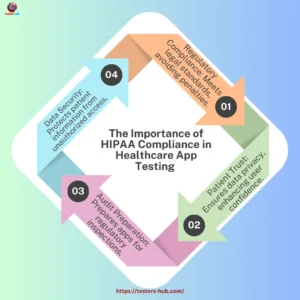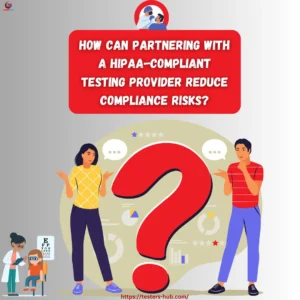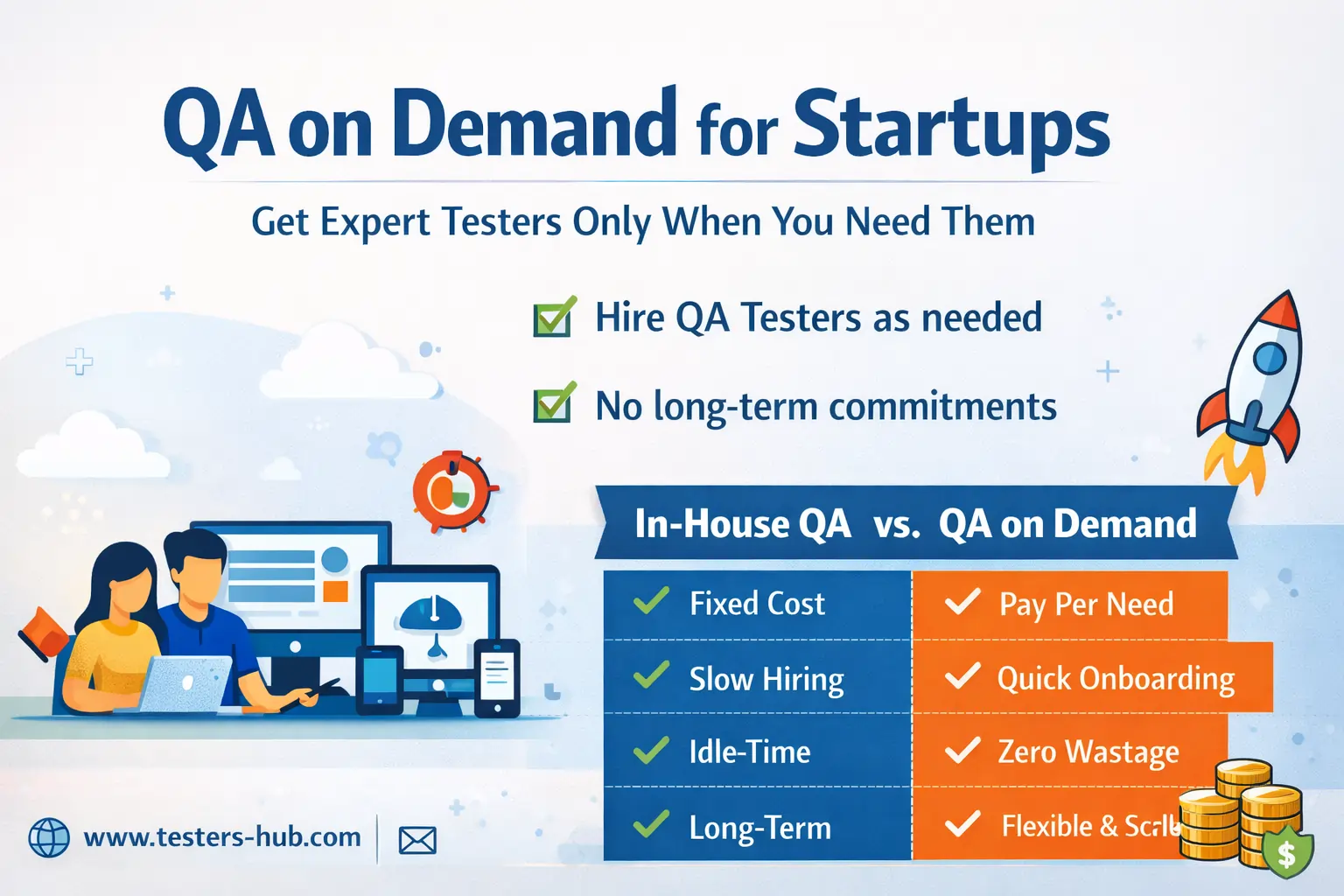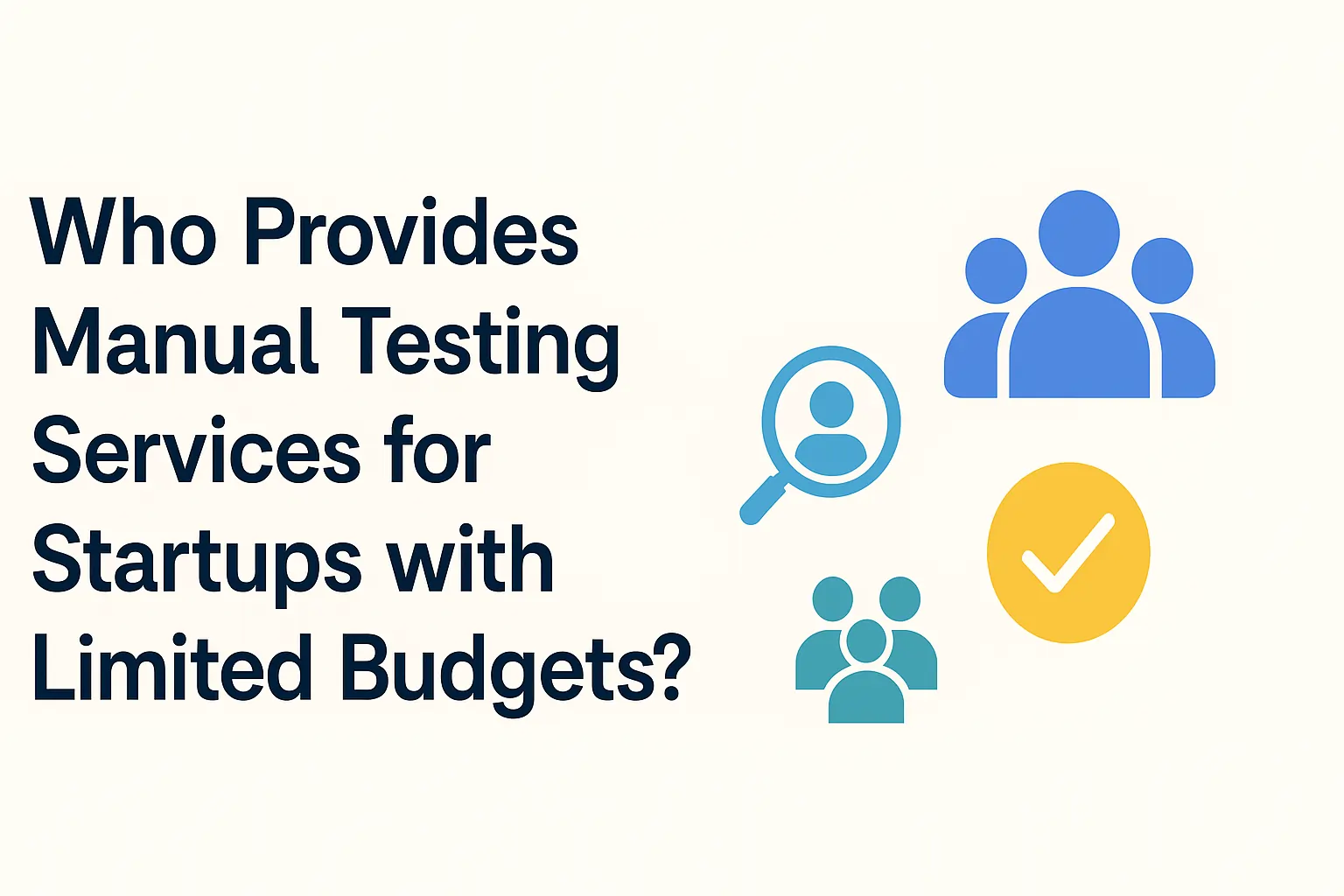Healthcare App Testing Services: Ensuring HIPAA-Compliant App Testing
As healthcare becomes more reliant on digital tools, the need for thorough healthcare app testing services has grown. These applications must not only provide smooth operation and a wonderful user experience, but also comply with tight requirements such as the Health Insurance Portability and Accountability Act (HIPAA), which assures patient data protection and privacy. Proper testing is critical to ensuring that healthcare software satisfies compliance standards, functions securely, and performs properly.
In this article, we’ll look at the necessity of HIPAA compliance in healthcare app testing, as well as critical testing components and recommended practices. We’ll also talk about the role of healthcare software testing firms, the importance of automation, and address some frequent questions to help you grasp the fundamentals of developing a secure, compliant, and user-friendly healthcare application.
1. The Importance of HIPAA Compliance in Healthcare App Testing
HIPAA compliance is a legal necessity for healthcare applications handling Protected Health Information (PHI). HIPAA mandates that organizations implement physical, administrative, and technical safeguards to secure PHI. When it comes to healthcare software testing, ensuring HIPAA compliance means that applications must protect sensitive patient data from unauthorized access or misuse.
For a healthcare application testing company, maintaining HIPAA compliance is crucial, not only to protect patient information but also to avoid severe regulatory penalties. From data encryption to audit controls, HIPAA-compliant app testing requires a stringent and systematic approach to healthcare software testing and QA.
2. Ensuring Data Security and Privacy in Healthcare Apps
Data security and privacy are foundational elements of healthcare domain testing. Given the rise of cyber threats, healthcare applications need to be tested rigorously to prevent data breaches and unauthorized access. Healthcare software testing companies typically include advanced security measures in their testing protocols, focusing on encryption, data storage security, and secure data transmission.
The need for secure healthcare app testing means that each component of the application must be analyzed to confirm that PHI remains safe throughout its lifecycle. This includes testing for vulnerabilities that could compromise data confidentiality, integrity, and availability.
3. The Role of Healthcare Software Testing Companies in Compliance
Working with a healthcare software testing company that understands the complexities of HIPAA compliance can be invaluable. These companies are well-versed in both the technical and regulatory aspects of healthcare application testing, providing the expertise needed to meet legal requirements while optimizing performance and usability.
Healthcare testing companies often employ a multi-layered testing approach, covering compliance verification, functional testing, and security assessments. Their knowledge and experience reduce risks and ensure that healthcare applications are built to withstand compliance audits and regulatory checks, making them invaluable partners in healthcare software testing.
4. End-to-End Testing Solutions for Healthcare Apps
End-to-end testing encompasses all aspects of a healthcare app, ensuring the final product is fully functional, secure, and user-friendly. Healthcare application testing services cover various testing stages, including:
- Functional Testing: Verifies that the app operates according to specifications, ensuring core functionalities are intact.
- Security Testing: Checks for vulnerabilities and data protection capabilities, a critical step for HIPAA-compliant healthcare software testing.
- Usability Testing: Ensures the app is user-friendly for patients and healthcare providers, as usability is crucial for engagement and satisfaction.
- Performance Testing: Tests for speed, responsiveness, and stability under various conditions, ensuring the app can handle high loads and concurrent users.
Comprehensive healthcare software testing and QA is essential to meet industry standards and patient expectations.
5. Implementing Automated Testing for Accuracy and Efficiency
In healthcare software testing, automation offers distinct advantages. Healthcare software testing automation tools streamline repetitive tasks, allowing for faster, more accurate testing. Automation also ensures consistency, which is particularly important for meeting HIPAA compliance.
With healthcare software testing and QA automation, healthcare organizations can enhance testing accuracy, reduce human error, and achieve shorter release cycles. Automated testing is especially valuable for regression testing, enabling teams to quickly verify that recent changes or updates haven’t disrupted existing functionality.
6. User-Centric Testing for Enhanced Usability
Healthcare applications serve a diverse user base, including patients, healthcare providers, and administrators. Healthcare app testing that focuses on usability ensures the app is accessible and intuitive for everyone involved. User-centric testing evaluates the user interface (UI) and user experience (UX), focusing on navigation ease, visual appeal, and accessibility features.
Improving usability also aids HIPAA compliance by reducing user error, which can lead to unintended data exposure. A user-friendly app not only enhances the patient experience but also minimizes security risks associated with user mistakes.
7. Testing for Cross-Platform Compatibility in Healthcare Apps
Healthcare applications need to perform consistently across various devices and operating systems. Cross-platform healthcare application testing ensures that the app delivers a secure and cohesive experience regardless of device type, whether it’s a smartphone, tablet, or desktop computer.
Healthcare application testing services for compatibility include testing for different screen sizes, operating systems, and device capabilities. This level of testing is essential, especially for telemedicine and remote patient monitoring apps, where patients and providers use diverse devices to access healthcare services.
8. Compliance-Driven QA Processes in Healthcare Software Testing
For healthcare apps, QA processes must be designed to ensure HIPAA compliance. Quality assurance in healthcare software testing includes rigorous checks for both regulatory standards and software performance. From early development to post-launch testing, compliance-driven QA helps ensure the application remains secure, functional, and legally compliant.
QA in healthcare testing involves careful documentation, auditing capabilities, and thorough validation at each stage, aligning with both regulatory and patient safety requirements.
9. Benefits of Choosing a HIPAA-Compliant Healthcare Application Testing Company
Working with a healthcare software testing company that is HIPAA-compliant offers significant advantages, including a deep understanding of regulatory requirements, improved risk management, and enhanced security. These companies bring specialized expertise in areas such as healthcare software testing automation, data security, and user experience, ensuring that applications meet compliance standards while being both secure and easy to use.
For healthcare organizations, forming these partnerships is essential in mitigating compliance risks and ensuring the creation of secure, reliable, and patient-focused
10. Best Practices for Healthcare App Security and Compliance Testing
Implementing best practices is crucial to effective healthcare app testing. Here are some essential practices for healthcare application testing services:
- Data Encryption: Encrypting PHI in transit and at rest to protect data from unauthorized access.
- Access Controls: Implementing strict access controls to restrict data access to authorized users only.
- Audit Trails: Ensuring that every access and modification of PHI is logged and auditable.
- Regular Security Audits: Performing routine audits to assess and improve data security practices.
- Compliance Testing: Conducting compliance checks throughout the development lifecycle to ensure HIPAA standards are consistently met.
Frequently Asked Questions (FAQ)
- Q1: What is HIPAA compliance, and why is it important in healthcare app testing?
HIPAA protects patient data privacy and security. In app testing, it ensures apps handling PHI comply with legal data protection standards. - Q2: How does a healthcare software testing company ensure HIPAA compliance?
They implement data security measures, conduct security tests, and ensure apps follow PHI protection regulations. - Q3: What are the main components of healthcare application testing services?
These include functional, security, usability, and performance testing to ensure the app is secure and works effectively. - Q4: How does automation in healthcare software testing help with HIPAA compliance?
Automation improves testing efficiency, reduces errors, and ensures consistent compliance, especially during frequent updates and changes.
Conclusion
In today’s digital health landscape, healthcare application testing services play a critical role in creating secure, reliable, and compliant healthcare solutions. With HIPAA compliance as a cornerstone, healthcare software testing covers a broad array of testing requirements, from functional accuracy to data security. Partnering with a healthcare software testing company that understands the regulatory landscape not only protects patient data but also enhances application usability, performance, and patient trust.
By implementing healthcare software testing automation and following best practices, healthcare providers and developers can deliver applications that meet the highest standards of compliance and quality. For organizations aiming to deliver safe, effective healthcare apps, investing in robust testing services is not only wise but essential.












